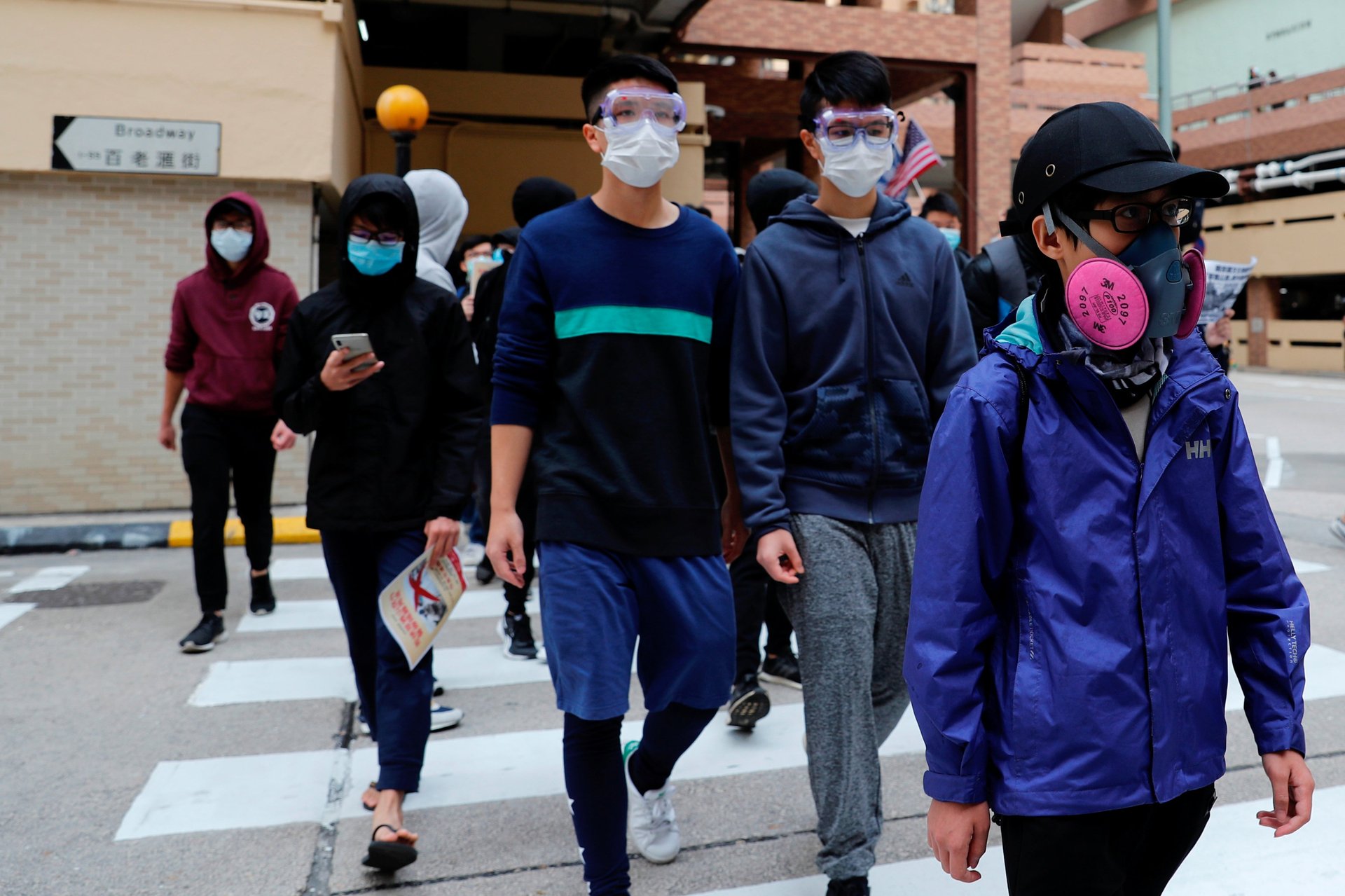Hong Kong police are using coronavirus restrictions to clamp down on protesters
A new Hong Kong regulation banning public gatherings of more than four people, enacted last week in an effort to combat the coronavirus pandemic, immediately stoked fears that it might be used to crack down on political dissent—and it appears to be happening already.


A new Hong Kong regulation banning public gatherings of more than four people, enacted last week in an effort to combat the coronavirus pandemic, immediately stoked fears that it might be used to crack down on political dissent—and it appears to be happening already.
Yesterday, protesters gathered outside the Prince Edward subway station in Hong Kong to mark seven months since a major event in last year’s protests, when riot police officers stormed into the station beating passengers indiscriminately. But the protesters were quickly dispersed, subdued, and detained, as police warned them to leave “to avoid the spread of the disease in society.” Public trust in the local police force is at all-time lows, and unresolved police brutality continues to be an ongoing problem.
Freedom of assembly—theoretically enshrined in the Basic Law, the city’s mini constitution—had already been consistently undermined by authorities over the course of last year, since a massive protest in June against a now-shelved extradition bill kicked off months of unrest. On many occasions, police have refused to grant permission for rallies and marches. When they did, permission was often abruptly retracted, and the assembly then summarily declared to be “unlawful.” A ban on face masks, enacted last October, was also criticized as a disproportionate restriction of freedoms, including of assembly.
Now, police appear to be taking the four-person limit on public gatherings to clamp down on protesters. A member of the opposition Democratic Party, who was present at the protest site yesterday, said he was (link in Chinese) walking away by himself when a group of police officers stopped him along with several other people and accused them of violating the new restrictions on gatherings. Civil Rights Observer, a group that serves as independent monitors of protests, also accused the police of abusing the public health regulations “to suppress expression and peaceful assemblies.”
In a statement to Quartz, the Hong Kong police said they hope to, “through enforcing the law, strengthen citizen’s vigilance and discipline for public health.” The force has not yet arrested or ticketed anyone for violating the new regulation on public gatherings, but reserves the right to pursue legal action, it said. It added that they have “always respected citizens’ freedoms of expression, speech, and assembly.”
In other countries too, police have imposed coronavirus curfews and other restrictions with excessive force, often against some of the poorest and most vulnerable populations. In Kenya, police shot dead a teenage boy who was standing on his balcony when officers stormed his neighborhood, beating people who were breaching the curfew. In South Africa, police fired rubber bullets at shoppers who were lining up outside a grocery store. And in India, police have been seen beating people during the 21-day curfew, which took effect on March 25.
There have been concerns, too, that Hong Kong police and officials will use the new regulations to disproportionately target businesses in Hong Kong’s so-called yellow economy—that is, businesses that are supportive of the protest movement. One restaurant popular with protesters has been repeatedly inspected by police (link in Chinese) since the new social distancing rules came into effect, as officers made sure tables were at least 1.5 meters (5 feet) apart with no more than four people per table. Police have said (link in Chinese) they would work with other law enforcement agencies to ensure citizens comply with the new Covid-19 restrictions.
Since January, as the novel coronavirus spread rapidly in China, large-scale protests in Hong Kong have taken a pause as people called on each other to avoid crowds. Smaller, more spontaneous demonstrations have erupted, however, including in neighborhoods where the government sought to set up quarantine centers, and a spate of petrol bomb attacks on police facilities.